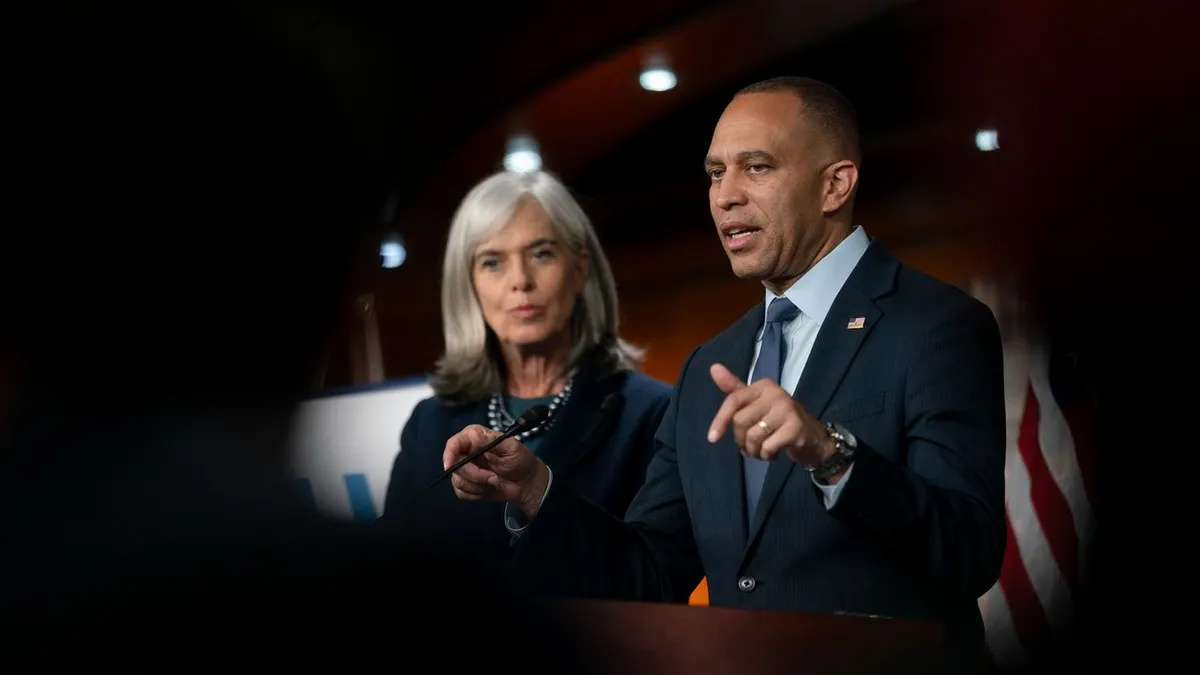
In a significant move to address what they perceive as an inadequate deal to end the ongoing government shutdown, House Democrats have devised a strategic plan: a discharge petition aimed at extending the crucial Affordable Care Act tax credits. This initiative represents a last-ditch effort by Democrats to secure a vote in the House on a matter they consider vital.
A discharge petition serves as a powerful legislative tool that compels a vote on any proposed law if it garners the support of 218 House members. This mechanism allows the minority party to bypass the majority on bipartisan bills, thereby increasing the likelihood of a vote taking place. Currently, Democrats hold 214 seats in the House, meaning they require the backing of at least four Republican representatives to reach the necessary threshold, even if every Democrat signs the petition.
During a recent closed-door caucus meeting, House Minority Whip Katherine Clark (D-Mass.) and Leader Hakeem Jeffries (D-N.Y.) unveiled this strategy, according to multiple sources closely following the developments. The proposed legislation aims to renew the expiring ACA subsidies for an extended period of three years, which exceeds the one- and two-year extensions that have been suggested by various bipartisan groups of House members.
Despite the Democrats' efforts, the reality is that garnering Republican support for the discharge petition may prove to be a daunting task. Rep. Don Bacon (R-Neb.), known as one of the more centrist members of the Republican Party and a key proponent of the two-year extension proposal, has expressed skepticism about the petition's viability. Bacon has stated that for the extension of ACA tax credits to move forward, Democrats must engage in compromise discussions with Republicans on the House Appropriations Committee.
Democrats are particularly motivated to push for this vote, especially since House Speaker Mike Johnson (R-La.) has not committed to holding a vote on the ACA tax credits, even if a supporting bill manages to pass through the Senate. Recently, a faction of eight centrist Democrats diverged from their party's stance, choosing to vote with Republicans to reopen the government based on assurances of a Senate vote on the ACA tax credits in the near future. However, this potential Senate vote would be subject to a 60-vote threshold, presenting a significant challenge to its success.
As the situation unfolds, the outcome of the discharge petition and the negotiations surrounding the Affordable Care Act tax credits will likely play a critical role in shaping legislative dynamics in Congress.